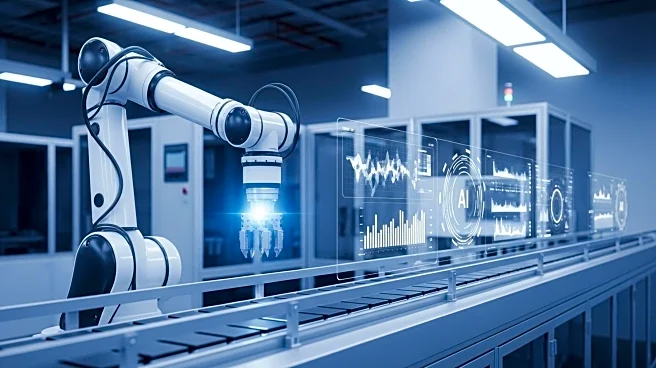What is the story about?
What's Happening?
Manufacturers are increasingly adopting consumer-driven manufacturing models, which rely on real-time consumer demand and feedback to guide production decisions. This approach contrasts with traditional manufacturing, which typically uses historical data and forecasts to drive production. Liya Getachew, a principal at Sendero Consulting, discussed this shift on the ASSEMBLY Audible podcast, highlighting the need for agile production lines and the integration of technology and data. The Internet of Things (IoT) plays a crucial role in enabling real-time personalization and decision-making. Companies are moving towards modular systems that allow for quick adjustments to production lines, accommodating custom orders and shifting volumes as needed. This transformation also requires a cultural shift within organizations, fostering collaboration and empowering cross-functional teams to make decisions without extensive approval processes.
Why It's Important?
The shift towards consumer-driven manufacturing has significant implications for the U.S. manufacturing sector. By aligning production more closely with consumer demand, manufacturers can reduce waste, optimize inventory, and respond more swiftly to market changes. This approach can lead to increased efficiency and competitiveness in a global market. Companies that successfully implement these models may gain a competitive edge by offering more personalized products and services, potentially increasing customer satisfaction and loyalty. However, the transition requires substantial investment in technology and a cultural shift within organizations, which could pose challenges for some manufacturers.
What's Next?
As manufacturers continue to adopt consumer-driven models, the industry may see increased investment in IoT and data analytics technologies. Companies will likely focus on building more flexible and responsive production systems. There may also be a growing emphasis on training and developing the workforce to adapt to new technologies and collaborative work environments. Stakeholders, including technology providers and industry leaders, will play a crucial role in supporting this transition, offering solutions and guidance to manufacturers navigating these changes.
Beyond the Headlines
The move towards consumer-driven manufacturing could have broader implications beyond the immediate industry. It may influence supply chain dynamics, as manufacturers seek closer integration with suppliers to ensure timely delivery of materials. Additionally, this shift could impact labor markets, as the demand for skilled workers capable of operating advanced technologies increases. There may also be environmental benefits, as more efficient production processes could lead to reduced resource consumption and waste.
















